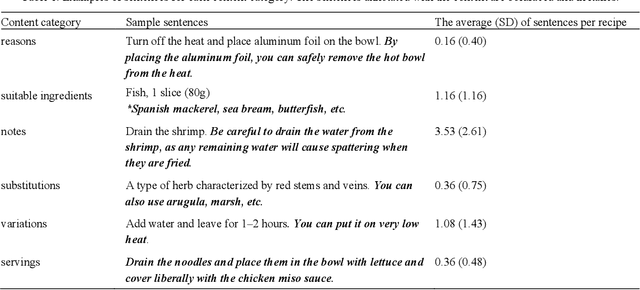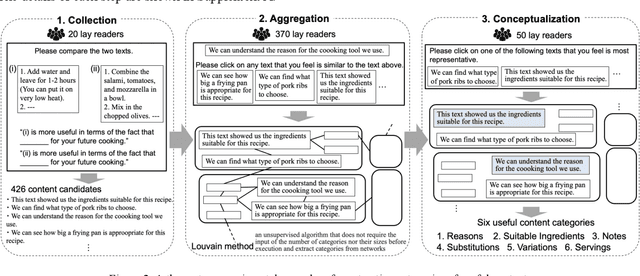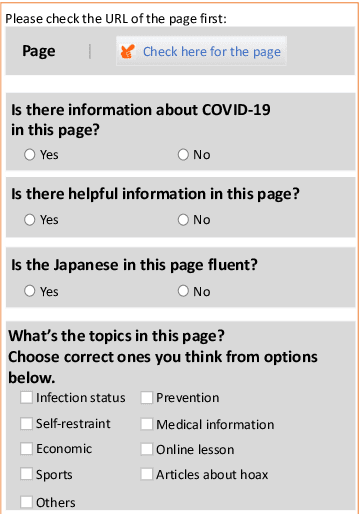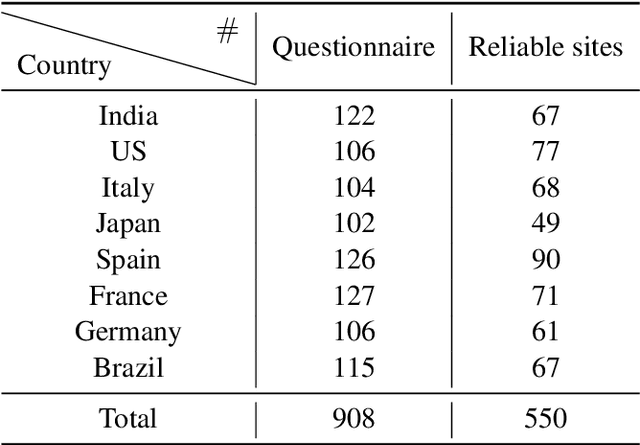Masaki Matsubara
An experimental framework for designing document structure for users' decision making -- An empirical study of recipes
May 02, 2023



Abstract:Textual documents need to be of good quality to ensure effective asynchronous communication in remote areas, especially during the COVID-19 pandemic. However, defining a preferred document structure (content and arrangement) for improving lay readers' decision-making is challenging. First, the types of useful content for various readers cannot be determined simply by gathering expert knowledge. Second, methodologies to evaluate the document's usefulness from the user's perspective have not been established. This study proposed the experimental framework to identify useful contents of documents by aggregating lay readers' insights. This study used 200 online recipes as research subjects and recruited 1,340 amateur cooks as lay readers. The proposed framework identified six useful contents of recipes. Multi-level modeling then showed that among the six identified contents, suitable ingredients or notes arranged with a subheading at the end of each cooking step significantly increased recipes' usefulness. Our framework contributes to the communication design via documents.
A System for Worldwide COVID-19 Information Aggregation
Jul 28, 2020



Abstract:The global pandemic of COVID-19 has made the public pay close attention to related news, covering various domains, such as sanitation, treatment, and effects on education. Meanwhile, the COVID-19 condition is very different among the countries (e.g., policies and development of the epidemic), and thus citizens would be interested in news in foreign countries. We build a system for worldwide COVID-19 information aggregation (http://lotus.kuee.kyoto-u.ac.jp/NLPforCOVID-19 ) containing reliable articles from 10 regions in 7 languages sorted by topics for Japanese citizens. Our reliable COVID-19 related website dataset collected through crowdsourcing ensures the quality of the articles. A neural machine translation module translates articles in other languages into Japanese. A BERT-based topic-classifier trained on an article-topic pair dataset helps users find their interested information efficiently by putting articles into different categories.
 Add to Chrome
Add to Chrome Add to Firefox
Add to Firefox Add to Edge
Add to Edge